Description
Michelle Green – Stroke Rehab for Patients who “Push”: Management Strategies for a Unique Patient Population
- Faculty:
- Michelle Green
- Duration:
- Full Day
- Format:
- Audio and Video
- Copyright:
- Nov 07, 2018
Description
Pushing behavior presents serious challenges during stroke rehabilitation. Patients who push are often low level, need a lot of assistance, have considerable safety concerns, and do not respond to typical treatment interventions. This recording will show you how to address the root causes of pusher syndrome.
This lab-intensive, recording will show you how to address the root causes of pusher syndrome with evidence-based treatment activities and progressions. Learn how to assess and address the limiting impairments of pusher patients, utilizing the ICF model and principles of neuroplasticity to select the right intervention at the right time, and to maximize treatment outcomes.
Additionally, appropriate assessment tools and functional performance tests will be practiced in order to apply treatment ideas in any environment. You will come away with techniques applicable to other patients who present with similar impairments such as difficulty with midline, retropulsion, trunk malalignments, postural control deficits, and gait dysfunction, making this course a great investment! This dynamic course will take your treatments to the next level!
Handouts
| Manual – Stroke Rehab for Patients who “Push” (19.06 MB) | 126 Pages | Available after Purchase |
Outline
ICF MODEL AND ROLE IN ASSESSMENT AND TREATMENT
- ICF Models guide to clinical reasoning
- Levels of ICF definitions and examples
- Correlation with assessment, prognosis and treatment planning
PATHOPHYSIOLOGY OF “PUSHING”
- Role of vestibular system
- Localization of lesions correlating with “pushing”
- Thalamic lesions and “pushing”
- Role of graviceptive systems
- Best support for occurrence of “pushing”
COMMON CHARACTERISTICS OF “PUSHERS”
- Alignment faults (trunk, head, pelvis, femur)
- Movement dysfunction
- Midline deficits
- Other (sensory loss, visual, neglect, cognition)
ASSESSMENT TOOLS
- Tests to confirm presence of “Pushing”
- Outcome measures
- Role of upper and lower trunk assessment
TASK-ANALYSIS, HYPOTHESIS DRIVE APPROACH
- Why use this framework for clinical reasoning
- What is the framework
- How it guides tasks assessment and guides treatment choices
- How to execute a task analysis
- Neuroplasticity and directing treatment
choices - Motor control and motor learning theories on set-up and progression
TREATMENT SET-UP FOR SUCCESS (REDUCE RISK, IMPROVE SAFETY, IMPROVE OUTCOMES)
- Choosing a position for treatment
- Align patient for best results
- Activate muscles in coordinated sequenced fashion to mimic functional demands
- Rehabilitation of function
- Compensation or Recovery?
TREATMENT FOR THE LOW, MID AND HIGH-LEVEL “PUSHER”
- Primary characteristic for each level
- Starting point and progression
- Functional re-education considerations
- Use of objects, adjunct, and equipment in treatment
Faculty

Michelle Green, PT, DPT, C-NDT, NCS Related seminars and products: 7
Michelle Green, PT, DPT, C-NDT, NCS, is an expert in stroke rehabilitation, with over 20 years of experience helping countless patients recover from neurological conditions. Her background in NDT, Pilates, and yoga has influenced her assessment and treatment approach, providing her with enhanced insight into movement assessment and guided movement re-education.
Dr. Green travels nationally to present seminars on stroke rehabilitation, and she is known for her dynamic, hands-on teaching style. She earned her Doctorate in Physical Therapy from University of North Carolina Chapel Hill, and she teaches as an assistant professor in the DPT program at Campbell University. Her additional interests include education and learning, impairment-based treatment across the lifespan, and application of mind-body practices for improving mental and physical health.
Speaker Disclosures:
Financial: Michelle Green is an assistant professor at Campbell University. She receives a speaking honorarium from PESI, Inc.
Non-financial: Michelle Green is a member of the American Physical Therapy Association; and the North Carolina Physical Therapy Association.
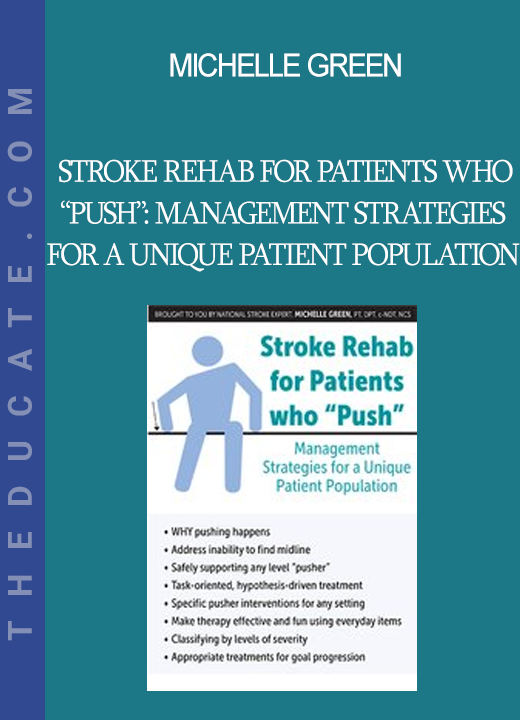
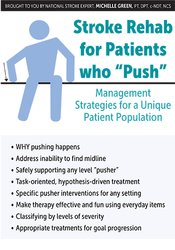

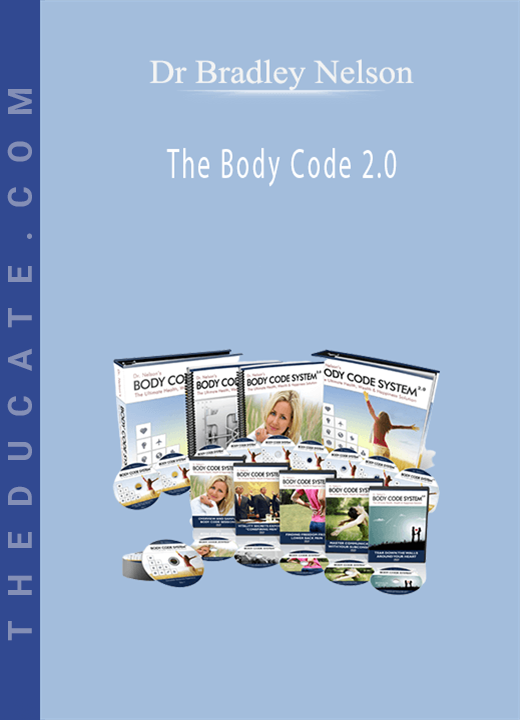
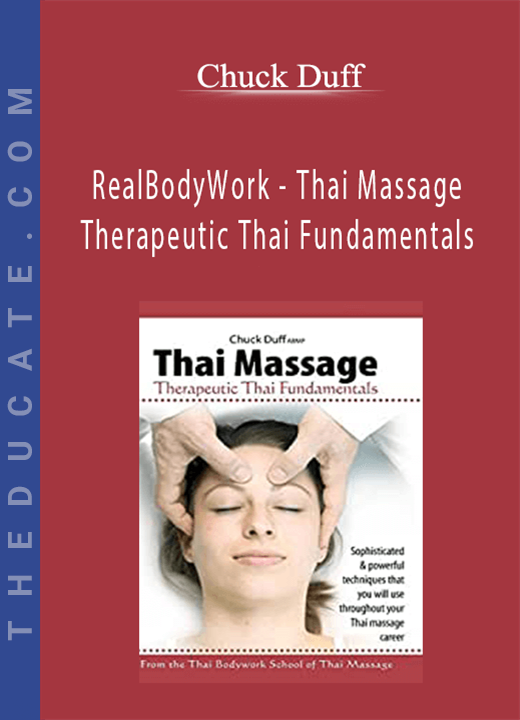

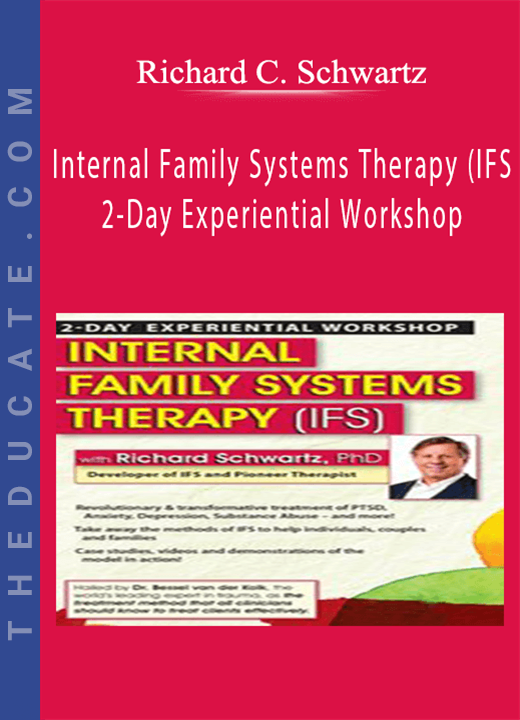
Reviews
There are no reviews yet.